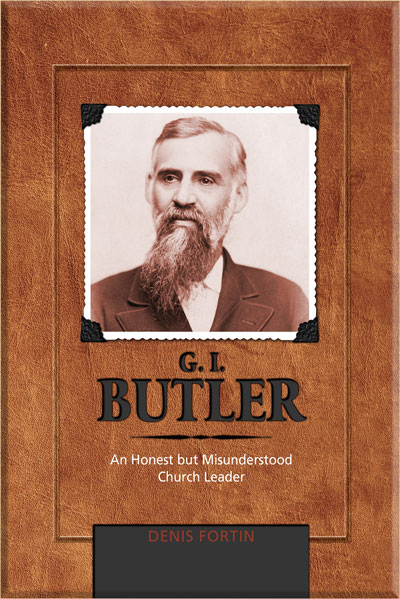Dr Denis Fortin is professor of historical theology at the Seventh-day Adventist Theological Seminary, Andrews University, in Berrien Springs, Michigan, where he has now served for 30 years. He talked recently about his new biography of 19th-centruy Adventist leader, G I Butler.
What drew your attention to the story and history of G I Butler?
Honestly, it was George Knight who asked me if I would be willing to write this biography as part of the Adventist Pioneer series. I did not know much about Butler beyond what I had read in our history books, but the idea of researching what this man had done interested me and I took on the project.
How long have you worked on this project?
It took me about 10 years to complete this project. What I did not know at first is the huge number of letters and articles Butler wrote in his lifetime. He was a prolific writer and most of his letters were kept in archives. To write this biography, I read every single letter (that I found) that he wrote or was written to him. It took me years to read, analyse, and synthesize what I found. In the end, I came to really know this man well.
Butler is often seen as on the wrong side of Adventist history. Is there more to it than that?
After reading so many letters and articles, I realised that George Butler, this former General Conference president, was an honest but misunderstood church leader. Butler was true to himself and to his church. And because of some of his theological and ecclesial positions, taken out of devotion and concern for the truth, he came to be seen as opposing some ideas and teachings that others championed.
In the 1886–88 period, Butler, Uriah Smith, and many others, opposed the teaching of A T Jones and E J Waggoner on the meaning of righteousness by faith. And since Ellen White gave her support (albeit a qualified support) to what Waggoner and Jones were teaching, Butler was branded as wrong, harsh, stubborn, and opposing the “light from God.” What has not been well explained is why he took this position and why it mattered to him to stand up to what Waggoner was teaching. He did it out of honesty and care about the Adventist heritage and conviction his family has accepted from Joseph Bates soon after the end of the Millerite movement.
For Butler, accepting Waggoner’s point of view on the law in Galatians (which was the basis for his teaching on righteousness by faith), was tantamount to abandoning the historic Adventist faith. Butler could not do this. And, what is not realised today, is that Butler’s point of view on the law in Galatians is still the interpretation that most evangelists use when they discuss the difference between the eternal and immutable Ten Commandments and the temporary ceremonial laws of the Old Testament. It’s ironic how we have branded Butler as wrong, yet we still use his primary argument that supposedly categorized him as wrong!
What do you hope readers take away from your book for our faith and faithfulness today?
My hope is that readers of the Butler biography will not only get a better feel for how our church developed, but also will learn how complicated things were, how people were imperfect but also how they were so dedicated to this cause. We have much to learn from them, from their dedication, their pain and sufferings, their love for the truth, and their mistakes. Another hope I have is that this biography will nuance carefully how we teach early Adventist church history, the early development of our doctrines, and also how we ought to understand Ellen White’s crucial, yet imperfect influence in this early history. If taken seriously, this biography will change how we teach Adventist history in the future.

G. I. Butler: An Honest but Misunderstood Church Leader and other books by Denis Fortin are available from Adventist bookshops in Australia and New Zealand, or online at adventistbookcentre.com.au/g-i-butler.






